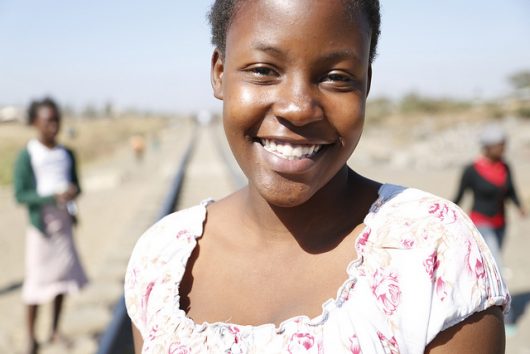The Importance of Improving Women’s Empowerment in Zambia

Zambia is a nation directly above Zimbabwe that has made a concerted effort in the past year to stave off both gender-based violence and child marriage. The nation realizes that in order to enjoy a brighter future, it must educate all members of the household and strive for women’s empowerment in Zambia.
The female Vice President of Zambia, Inonge Wina, made a statement in August of this year wherein she commended the nation for making great strides in not only championing for women’s empowerment in Zambia, but also in taking practical steps in appointing women to positions of leadership.
“However, there is [still a] need to adopt laws in our country and policies that empower women and enhance their leadership roles and equitable participation in governance, politics and in the labor force,” she said.
In 2017, Zambian police recorded 55 gender-based violence (GBV) murder cases, an increase of nearly a quarter compared to 41 recorded in the same period in 2016. There was also a spike in cases of assault, with 1,644 cases recorded this year.
Independent advocacy groups such as the Non-Governmental Organizations Coordinating Council (NGOCC), have been pushing for the implementation of an anti-GBV fund to help survivors. NGOCC executive director Engwase Mwale has also advocated for the full implementation of the “anti-GBV law,” which includes constructing shelters for survivors in the districts.
In response to the increase in gender-based violence, Zambia’s Ministry of Gender launched a strategy aimed at aiding women who have experienced gender-based violence financially.
The Gender-Based Violence Survivors Income Generating Activities Tracking Strategy has already helped to empower 6,500 survivors by providing them with financial opportunities; evidence has shown poverty to be one of the causes spurring gender-based violence.
Lawmakers and government officials in Zambia point to a lack of education as one of the main reasons that gender-based crimes occur so frequently. At the moment, the law in Zambia describes a child as anyone under the age of 16, and allows anyone to marry at the age of 18.
Chief Cooma of the Tonga-speaking people in Zambia’s Choma district, capital of the southern province of Zambia, has taken a strong stance on early marriages. He has warned his subjects against doing so, saying he will not hesitate to have any perpetrator prosecuted by the full power of the law.
Esnart Siandavu of Sikaunzwe, Kazungula, says gender-based violence does not apply only to battery, but in the distribution of resources as well.
“I think gender-based violence is not only when a husband beats his wife. Like here, women are involved in farming while their husbands go drinking. Surprisingly, when it is time to sell the produce to the Food Reserve Agency or private buyers, it is the husbands who take a central role as if we do not know where the FRA depots are. I think it is a violation of our rights because we do not see the money after toiling for the whole farming season,” she said.
Even though women’s empowerment in Zambia is continuing to make strides through education, the patriarchal systems in place still make it difficult for women to take full control of their own financial situations.
– Sam Bramlett
Photo: Flickr
